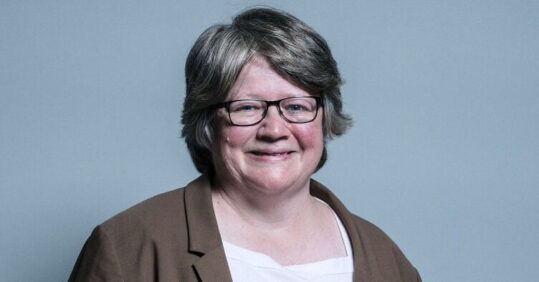What does health secretary Thérèse Coffey mean for nursing?

Ms Coffey’s appointment has sparked concerns among campaign groups and healthcare professionals due to her problematic voting record and recent comments on healthcare.
One of the biggest concerns for campaigners is Ms Coffey’s opposition to abortion access. Individuals close to Ms Coffey say that her Catholic faith is important to her policy outlook and this is reflected in her voting record.
While she insists that she will not seek to overturn abortion access she has previously voted against increasing access to abortion. Ms Coffey voted against making at home abortion polls permanently available after they were temporarily allowed during the pandemic.
Related Article: ‘Patients not prisoners’: Palliative care nursing behind bars
She also opposed extending abortion access to women in Northern Ireland and in 2010 introduced a motion in Parliament calling for ‘mental health assessments’ for women seeking abortion.
In an interview with Sky News in June following the overturn of Roe v Wade in America, Ms Coffey said that she would ‘prefer that people didn’t have abortions’, but said that ‘abortion law isn’t going to change in [the UK]’.
Recently Ms Coffey has come under fire from nurses after her opening statement of commitments overlooked this large part of the healthcare workforce. In a tweet, she said that ‘Patients are my top priority, as we focus on ABCD – ambulances, backlogs, care, doctors and dentists.’
Ms Coffey further irked nurses when she said in an interview on BBC Radio 4’s today program that the ‘majority of healthcare is delivered through primary care, through our doctors, our dentists, chiropractors’, again overlooking the work done by those in the nursing profession.
Responding to the announcement of Thérèse Coffey being appointed health secretary, RCN general secretary and chief executive, Pat Cullen, said: ‘Ms Coffey must buck the trend of her predecessors and listen to nursing staff. Our ask for professional and personal support cannot afford to fall on deaf ears – doing the right thing by nurses is the right thing by patients too.
‘The workforce crisis cannot be the elephant in the room any longer. Politicians skirt around the issue but, without enough staff, new promises will not be deliverable.’
Besides her more controversial commitments Ms Coffey has also opposed Rishi Sunak’s proposed fees for missed GP appointments saying that ‘doctors would not want patients to be charged for missed appointments.’
Related Article: NHSE confirms dates and eligibility for autumn Covid and flu jabs
Ms Coffey told LBC: ‘This idea has been rolling around for a long time and I think there’s a reason why it hasn’t been brought into place in the past.
‘I think putting the onus on doctors to fine their patients – I’m not sure many doctors would want to do that. Quite candidly, it’s important that we treat people.’
Thérèse Coffey voting record on health:
- Consistently voted for ‘reforming the NHS so GPs buy services on behalf of their patients’.
- Consistently voted against smoking bans.
- Consistently voted against restricting the provision of services to private patients by the NHS.
- Voted against allowing terminally ill people to be given assistance to end their life.
Source: TheyWorkForYou
A staunch supporter of Mrs Truss’ leadership bid, Thérèse Coffey started her political career in 2010 when she became the first female MP for Conservative safe seat Suffolk Coastal. Until her latest appointment she had served as work and pensions secretary since 2019.
Other than her time as work and pensions secretary, Ms Coffey was previously minister of state at the Department for Environment, Food and Rural Affairs from July 2019 to September 2019, parliamentary under secretary at the same department between July 2016 and July 2019 and deputy leader of the House of Commons from May 2015 until July 2016.
Related Article: QICN bids farewell to Dr Crystal Oldman as she retires from CEO role

See how our symptom tool can help you make better sense of patient presentations
Click here to search a symptom




